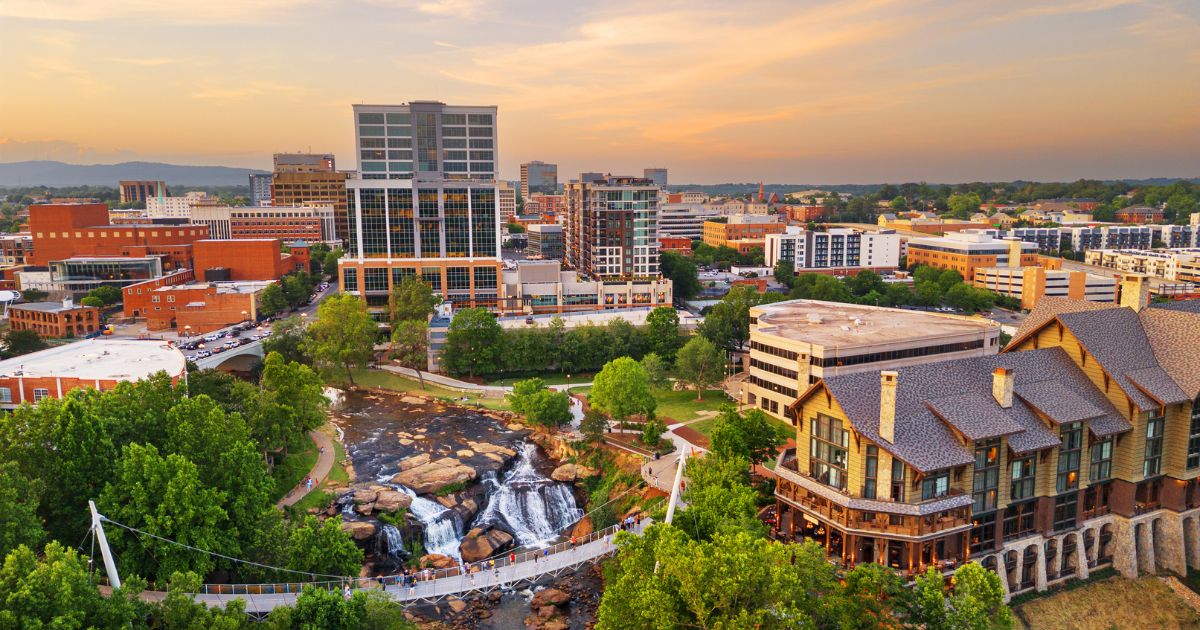
This article is included in these additional categories:
In South Carolina, a pivotal legislative endeavor to facilitate a new power plant and overhaul utility regulations faces uncertain prospects as senators opted against a rushed decision in the waning days of the session. Instead, they redirected the bill towards a commitment to address utilities’ concerns after comprehensive scrutiny later in the year.
Renewable Energy Landscape
South Carolina’s renewable energy landscape is evolving, with solar power taking the lead in recent years. In 2022, solar energy accounted for 3% of the state’s total net generation, marking a significant increase from previous years. The state saw a substantial rise in solar electricity generation, with newly installed utility-scale capacity in 2023 exclusively powered by solar energy. Additionally, hydropower plays a notable role, with 34 utility-scale hydroelectric generating plants, including pumped-storage facilities. South Carolina ranks third in pumped-storage hydropower capacity nationally, utilizing these facilities to manage electricity demand fluctuations.
Biomass also contributes to South Carolina’s renewable energy mix, accounting for 2% of the state’s generation in 2022. With extensive forest coverage, forestry is a crucial industry, supporting eight utility-scale power plants that utilize wood and wood waste for electricity generation. Furthermore, the state harnesses landfill gas and agricultural residues for power generation, showcasing a diverse range of biomass resources. While South Carolina lacks substantial onshore wind resources, it holds offshore wind potential, with federal leases for wind power development off the coastline.
Amended Legislation
Senate Majority Leader Shane Massey underscored the significance of the decision, stating, “It’s so comprehensive, and it’s so consequential — not just for now or next year, but for the next 40 years or longer — that we need to make sure we get this right.”
The amended legislation, passed by the Senate this week, acknowledges various critical factors such as the state’s burgeoning population, economic growth, escalating energy demands, and the consequent necessity for new power infrastructure. Senator Tom Davis emphasized the legislature’s commitment to action: “It is something we have to address. … We do have capacity issues. We do have transmission issues.”
Initially introduced by House Speaker Murrell Smith in February, the bill sought authorization for Dominion Energy and Santee Cooper to explore the development of a 2,000-megawatt natural gas plant. Additionally, it included extensive regulatory reforms, which drew criticism from environmental and consumer advocacy groups.
Uphill Battle
However, the bill encountered hurdles upon reaching the Senate floor, prompting concerns about the pace of its progression. Massey emphasized the importance of thorough scrutiny and urged senators to postpone deliberations until the fall session, cautioning against hasty decisions that could have far-reaching implications.
Meanwhile, discussions in the Senate also addressed another critical aspect of the state’s energy landscape concerning data centers, which are significant consumers of power and water. Proposed amendments aimed to refine tax incentives for these facilities, reflecting concerns about their impact on the state’s power grid and fiscal considerations.
In response to the House’s attempt to bundle the energy legislation with unrelated bills, the Senate remained resolute, advocating for a separate deliberation process to ensure focused attention on each issue. Massey called for a clear distinction, stating, “I don’t want to get in a petty back and forth with our friends in the House because our emotions are high.”
While tensions between the chambers persist, the fate of the energy bill remains uncertain as negotiations continue. House Speaker Smith expressed optimism, stating, “We’ll likely have a bill because when everyone makes something a priority, it ends up happening.” However, the complexity of the issues at hand and the legislative’s divergent perspectives suggest that reaching a consensus may prove challenging.
- SEO Powered Content & PR Distribution. Get Amplified Today.
- PlatoData.Network Vertical Generative Ai. Empower Yourself. Access Here.
- PlatoAiStream. Web3 Intelligence. Knowledge Amplified. Access Here.
- PlatoESG. Carbon, CleanTech, Energy, Environment, Solar, Waste Management. Access Here.
- PlatoHealth. Biotech and Clinical Trials Intelligence. Access Here.
- Source: https://www.environmentenergyleader.com/2024/05/the-uncertain-future-of-utility-reform-in-south-carolina/
